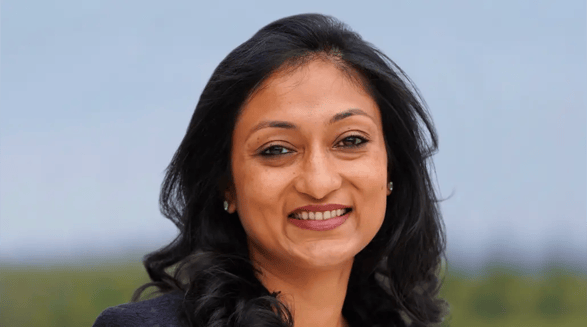Kanika Goela, Private Equity Investment Professional at abrdn
In our regular #MyFirstMcJob series, people with big jobs remember where they started

Hi, Kanika! Who are you and what do you do?
Hi, I’m Kanika Goela. I work in private equity asset management at abrdn in London. Then, as a side hustle, I’m an Angel Investor in women founded, impact-driven tech businesses.
What was your #MyFirstMcJob?
Working as a financial and operations analyst at Capital One, a large consumer financial services company in Richmond, Virginia in the US, age 23.
How did you get that job?
It was a post-MBA job. I grew up in India in a family where the culture wasn’t that you’d get a job while studying in school or college. In fact, girls were not expected to get a job. I went to university in Delhi, then Business School in Bangalore. Being one of the top business schools in India, a bunch of companies would conduct campus recruitments – consulting firms, investment banks, IT companies, etc. They’d invite applications beforehand. I applied with my CV, got shortlisted, likely because I had great grades and extracurricular achievements, went through a rigorous multi-stage interview process and got the job offer. It was the first time I’d been outside of Asia. So it was a big move. But I was young and ready for adventure.
How long did you work there for?
Four years.
What were the perks of the job?
The company culture and the people I got to work with. It was excellence oriented but also very teamwork oriented and had a great work / life balance. I remember, three months into the job, sitting down with my manager and being told: “You are working too many hours. Just say no to additional work!”
What skills did you learn that you still use today?
If I had to pick one, I would say this mantra as a manager “your job is to work yourself out of a job”
What as the biggest culture shock when you got to America?
India's a very patriarchal society, but I thought that was just India. It was a shock to see that the West was just as patriarchal with such defined gender roles. I remember going offsite for a fun day with the team. Everyone had brought food to share. All the guys went off to play football and all of the women, irrespective of the titles or roles, started to lay the table and get out the food. We looked at each other, as if to say: “Do you just realise what’s happened here?”
Did anything else funny happen?
When I arrived in the US, my employer had arranged for a rental car and accommodation for the first few months while I settled in. A Limo dropped me off at my accommodation, there was a car outside which I had to drive to work on Monday morning. I’d driven in India, but in India, you drive on the left hand side. I thought: “I don’t know how to drive on the right!” Fortunately I had been assigned a business buddy – a colleague to check in on me – who called on the Sunday to check in. I said: “Can you help me? I have this car outside but I'm never driven on the right hand side of the road before.” So he gave me a driving lesson, which was brilliant!
Now you work in London, what are the differences between Americans and the Brits?
Americans are very cut and dry. They say it like they see it. They're not afraid to openly debate or disagree. I was sort of trained that way. In the UK, if someone disagrees with you, you generally won't hear it directly. You have to understand the cues and read the body language. So that's a big difference. In my experience in Richmond, everyone lived very “American” lives - the Super Bowl, the 4th of July, Thanksgiving and inculcated the culture. London is so cosmopolitan, there seems to be more space to be who you and live your own culture.
Are you still in contact with anyone you worked with?
When I moved back to India Facebook and LinkedIn weren’t around. I also eventually moved to another industry, investment banking, so I was in touch with only a few folks. But I subsequently got back in touch with more thanks to social media.
Why is alumni important to you?
On a human level, it's a shared connection from shared experiences, business challenges and achievements. On a practical level, it’s where you get your referrals and future job opportunities. It’s also somewhere you can make lifelong friends.
What would happen if you went back to America to work at Capital One again today?
As an investor, I'm now used to looking at and working on different business models across the world. So I might I find it boring doing the same thing over and over again.
If you could go back to that point in your life, what advice would you give yourself?
I’d tell my younger self: life is not linear. Progress isn't linear. Failure is fine, and embrace it. You have to be your own biggest cheerleader and believe in yourself.

